Symposium co-organized by The Korean Doctors Weekly and the AHKU② How should we prepare for Korean Peninsula Health Community?
“South and North Korea agreed to strengthen cooperation in the areas of quarantine and healthcare to prevent the influx and spread of infectious diseases, including taking emergency steps. (Pyongyang Peace Agreement on Sept. 19)
The Pyongyang Peace Agreement in September contains content that vows to enhance inter-Korean cooperation in health and medical fields. It also means the two Koreans will reinvigorate exchanges in these areas. The healthcare sector has been regarded as relatively free from politics and ideology but the chill in the inter-Korean relationship in the past several years has virtually frozen exchanges and cooperation in the healthcare sector, too.
This is the time to prepare for the future of healthcare in the Koreas by learning from past failures. Korea Biomedical Review, jointly with the Association of Healthcare for Korean Unification (AHKU), has held a symposium to think about ways to strengthen exchanges and cooperation in healthcare area between the Koreas and talk about healthy future for all Koreans.
|
① Why do we need the “Korean Peninsula Health Community”? Moderator: Shin Hyun-young, Public Relations Director at AHKU (Department of Family Medicine, Hanyang University Myongji Hospital) Panelists: Chun Wu-taek, Chairman of AHKU(Department of Medical Education, Yonsei University College of Medicine) Kim Shin-gon, Academic Director of AHKU(Department of Endocrine and Internal Medicine, Korea University College of Medicine) Park Sang-min, External Affairs Director of AHKU (Department of Family Medicine, Seoul National University College of Medicine) Yoon Suk-joon, Policymaking Director of AHKU (Department of Preventive Medicine, Korea University College of Medicine) |
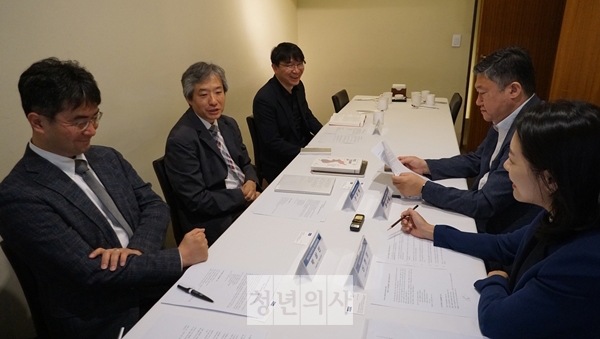
“Without having to unify two Koreas into one, we will make joint efforts to recognize and cooperate to make our respective societies better ones.” (In the preface to Preparations for Korean Peninsula Health Society).
The Association of Healthcare for Korean Unification has approached inter-Korean exchange and cooperation in the healthcare area from the aspect of “Korean Peninsula Health Community,” reflecting changes social situations in both Koreas. Particularly, it emphasized that South Korea should operate a control tower and set up a systematic plan for the two Koreas to create the Korean Peninsula Health Community through exchanges and cooperation in the healthcare area.
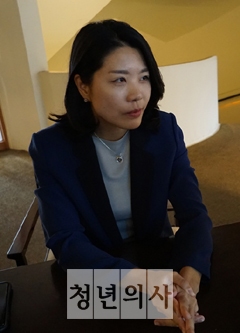
Shin (Moderator): So far, the focus of inter-Korean exchange and cooperation in healthcare has been on infectious disease and maternal-child health. And the Pyongyang Peace Agreement in September also mentioned the need to take urgent steps against contagious diseases.
Park: Vaccination is vital to control infectious diseases. North Korea cannot maintain its vaccination system without the support from the Global Alliance of Vaccination and Immunization (GAVI). If GAVI’s help ceases or destabilizes, a vital axis of the North’s infectious disease control will wobble. Fortunately, GAVI has a continuous support plan for North Korea. The North’s vaccination project gets effects thanks to a system in which a doctor takes care of a certain number of households. If financial problems emerge, however, South Korea needs to consider the matter in inter-Korean exchange and cooperation.
Moderator: Many experts also point to the need to control tuberculosis in North Korea.
Park: In the part related to tuberculosis, too, NGOs accounted for most of the supports to North Korea in the past. Since 2008, however, the Global Fund has made considerable financial support to the North. It has supported more than 100 billion won ($88.5 million) on the accumulated basis. As the result of evaluating the tuberculosis project in North Korea, however, the Global Fund concluded its supports for combating multidrug-resistant tuberculosis have fallen short of hitting the target it had set, and decided to provide the support until the end of this year and discontinue it after then. Initially, the fund had planned to give financial aid until July 30 but later decided to prolong it until the year-end through consultations with international experts.
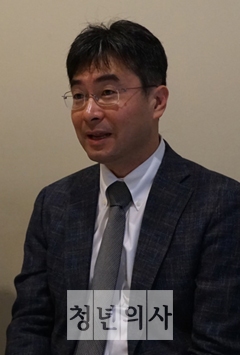
If there are no additional support in the future, North Korea’s efforts to contain tuberculosis can fall into a grave crisis. Matter related to tuberculosis control will also become an essential axis in inter-Korean exchange and cooperation in the future.
GAVI and the Global Fund receive contributions from each country, and South Korea is also making its contribution. The government gives about $4 million to GAVI annually. If we make an accumulated total of the yearly dues, the sum nearly coincides to the amount GAVI provides for Pyongyang. And when the Global Fund visited Korea last year, the fund asked for larger donations, noting that the South’s contribution to the fund ran one-third short of its total support to the North.
This notwithstanding, Korea’s contribution this year will not increase but remain at the existing level. From the standpoint of the Global Fund, its failure to persuade the donor nation was also one of the reasons for suspending its support to North Korea. That shows the South’s support for the fund indirectly influences the latter’s aid for the North. The government should also make careful plans concerning the control of infectious disease while taking overall larger flows into account.
Moderator: Are the South’s support for the North being made only through international organizations?
Yoon: In the past, South Korea sometimes offered aid directly to North Korea. Since the former Lee Myung-bak administration suspended all inter-Korean trade on May 24, 2010, however, Seoul has ceased direct support. Currently, North Korea is under the U.N. economic sanctions, and any material aids to the North should win approvals. The provision of medical supplies also belongs to material support.
Kim: Recently, the United Nations mentioned 10 conditions that can avoid its sanctions. Humanitarian aids or supports whose distributive transparency is guaranteed can reach North Korea unaffected by the U.N. sanctions. Therefore, there are ways to provide health and medical assistance even under the current circumstances.
Moderator: As previous inter-Korean cooperation has given priority to infectious diseases, the sides tended to drop non-contagious diseases from major topics of discussion. How are the situations in the North now?
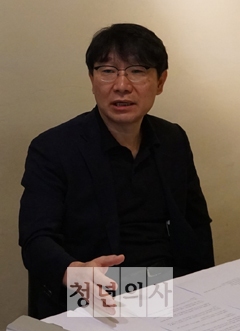
Kim: As is well known, North Korea had a disease structure led by chronic ailments before the “march of hardship” in the late 1990s. In the 1970s and ’80s, the North’s healthcare system was not inferior to the South’s. And they had a prevention-oriented healthcare system. As they underwent the worst famine in the late ’90s, however, the country fell into the disease structure of underdeveloped countries, vulnerable to infectious diseases and mother- and child-related health. Recently, however, its disease structure has shifted back to the previous pattern, getting out of the typically underdeveloped countries’ one.
Even if children survive infant diseases, the disease burden can last for life. That is also why South Korea experienced a sharp rise in chronic diseases, including diabetes. Chronic diseases increase when people or countries get wealthier after suffering nutritional deprivation. North Korea can also see an increase in people with chronic illness. Even now, the infant mortality rate reaches 30 percent in North Korea, but the country’s No. 1 cause of death is cardiovascular disease, and malignant diseases are also increasing. We should prepare for chronic diseases with greater attention in the future.
Moderator: People with chronic conditions seem to increase in North Korea. What are their perceptions about this issue?
Kim: Some reports about North Korea’s total population show their average blood pressure is higher than South Korean people’s. It is due in part to North Koreans’ life habits. They eat far saltier food than us in part because the North’s electricity shortage makes it difficult to freeze food, forcing them to eat salted food. The North’s smoking rate is also higher than the South’s. Besides, chronic diseases require the regular and consistent taking of certain drugs, but such medications are in short supply in the North. Some North Koreans do not regard their troubles as symptoms requiring treatment, which is another reason for the growth of chronic illnesses.
Because North Korea has a village doctor system based on preventive medicine, the country should worry about ways to change life habits to a healthier pattern.
Moderator: Mental illness is an area that also has drawn relatively small attention in the North.
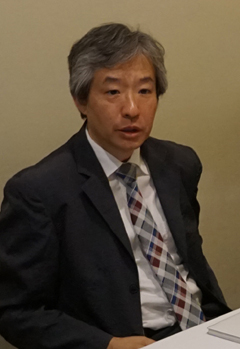
Chun: The attack rates of schizophrenia are almost the same in the U.S., Africa or Korea. There are differences, however, in the number of people subject for treatment. About 10 percent of the total population worldwide has psychiatric problems whether they are dementia, neurosis, depression or shock syndromes. The shares are similar in any country in the world. The problem with North Korea is the state does not regard neurosis and depression as subjects for psychiatric treatment. It sees only schizophrenia as a mental illness while not recognizing others as ailments. That often leads to the failures to treat patients appropriately. South Korea was not much different in the 1960s.
And the social stigma on mental illness keeps patients from confessing their problems candidly. It is a problem common to developing countries and is quite widespread in North Korea, too. People who are depressed or nervous express their symptoms by turning their problems into physical ones and are unable to get proper treatments.
In the future, South Korea should provide psychiatric support for North Korea in ways to increase North Korean people’s understanding of mental illness, stress the need for treatment, and expand access for treatment. The South ought to change the perceptions of mental illness among North Korean people and doctors, and, at the same time, enhance the experts’ ability to cure.
Moderator: The long national separation has resulted in a vast difference between the healthcare systems of South and North Korea. How should we prepare to narrow the gap?
Yoon: Even now, education and training of the workforce are free from the U.N. sanctions. There is nothing wrong with exchanging and supporting such type of software by international laws. However, both North Korea and the Korean Council for Reconciliation and Cooperation (KCRC) have low interests in this area. When North Korea asked for support to the South, it has traditionally focused on hardware support. When we proposed to make such exchanges more actively, North Korea and the north side of KCRC did not show positive interests. There have been partial and limited exchanges, but the North was passive when the South proposed massive, across-the-board personnel exchange.
The chances are high that future aid will continue to be hardware support in the future, too. The Pyongyang Peace Agreement in September also contained only issues on preventing epidemics. Software support, such as personnel exchange and education-training matters, do not require much money but are essential elements in unifying the two different systems continually. Starting with such parts is critical. And the so-called policymakers in South Korea should try hard to make North Korea acknowledge such a need. There should be the process of making North Korea accept it.
Moderator: You pointed out just now the importance of software exchange and cooperation, including the education and training of medical personnel. South and North Korea also have different systems in fostering healthcare workforce.
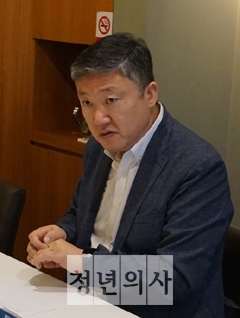
Yoon: A key issue is to which extent the South will recognize the North’s medical personnel. After the German unification, Germany accepted the medical licenses of former East Germany as they were. It was possible because the two Germanys had sufficient exchanges before unification and known about each other’s level. However, Koreas have failed to do so. North Korea is passive in receiving direct support from the South. As the two Koreas can communicate with the same language, lively exchange and cooperation are more important than anything else, as it will be of mutual help and serve as the touchstone of recognizing each other’s licenses.
Chun: Mutual recognition of South and North Korean licenses is also a delicate issue in the South, too. Therefore it is the posterior issue in creating the Korean Peninsula Health Community. It is a principle that North Korean medical professionals should treat North Korean people. South Korean medical workers will play the role of educators or trainers.
Park: South and North Korean experts will be able to unify or compare the different healthcare terms of South and North Korea, as they will accompany few, if any, political and diplomatic conflicts. It will be good for the experts to compare the educational and training processes of medical professionals first, and discuss how to homogenize them later. Even if they decide priorities by international standards, there can be differences in the areas North Korea may want place priority. The Koreas should form a control tower composed of expertise and political influence and let it lead the process.
Moderator: Strategic approach is also needed to enhance inter-Korean exchange and cooperation. Many experts also point to the need to set up a control tower by unifying varied voices from government agencies and professional groups and unifying them into one strategy.
Yoon: The lack of a control tower can result in the problem of overlapping support. And it has also been the case so far. An interagency approach is convenient, but not all projects can be done in such a way. Still, we need a control tower in which all related agencies can cooperate. Confusion can increase without a central organization.
Chun: If the inter-Korean exchanges and cooperation begin in earnest, various sectors will say theirs are the most urgent concerns. Even if we set priorities according to international standards, including the World Health Organization guidelines, North Korea may have different wants and needs. This is why we have to form a control tower composed of expertise and political power.
Park: Currently, several agencies are conducting healthcare projects in North Korea financed by the Unification Ministry’s South-North Cooperation Fund. Overseas funds under the Foreign Ministry are also making financial supports. Not only local autonomous bodies but also various organizations are carrying out projects with the North, which makes it necessary to coordinate these works by, for instance, the Office for the Government Policy Coordination. Or, the government should make systematic efforts by designating a separate foundation or agency to monitor international trends and coordinating all related endeavors. I think the healthcare areas should be the starting point.
Chun: It was significant progress that the Pyongyang Peace Agreement specified the healthcare area as the critical item. We may start humbly with anti-epidemic or other particular areas but should make far more in-depth and broader preparations if we are to make significant advances. The proposed control tower should persuade various fields and make them go forward together. We should establish a system that continues despite the change in political power.

